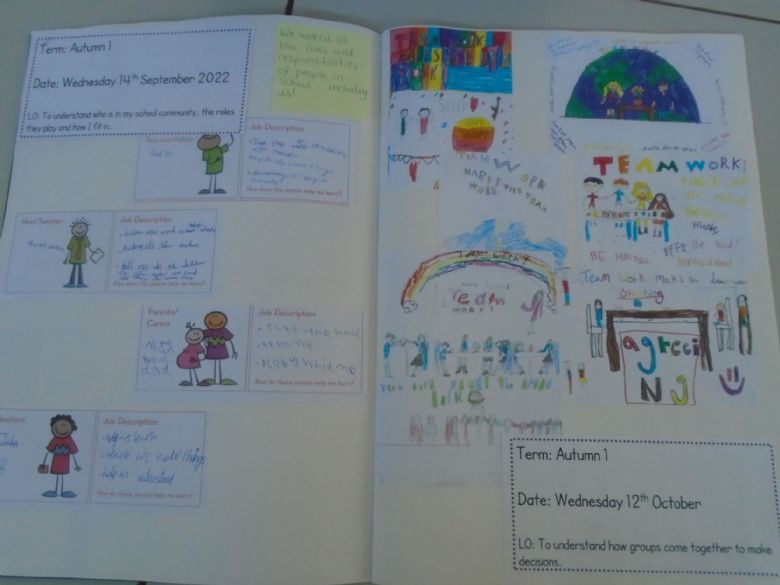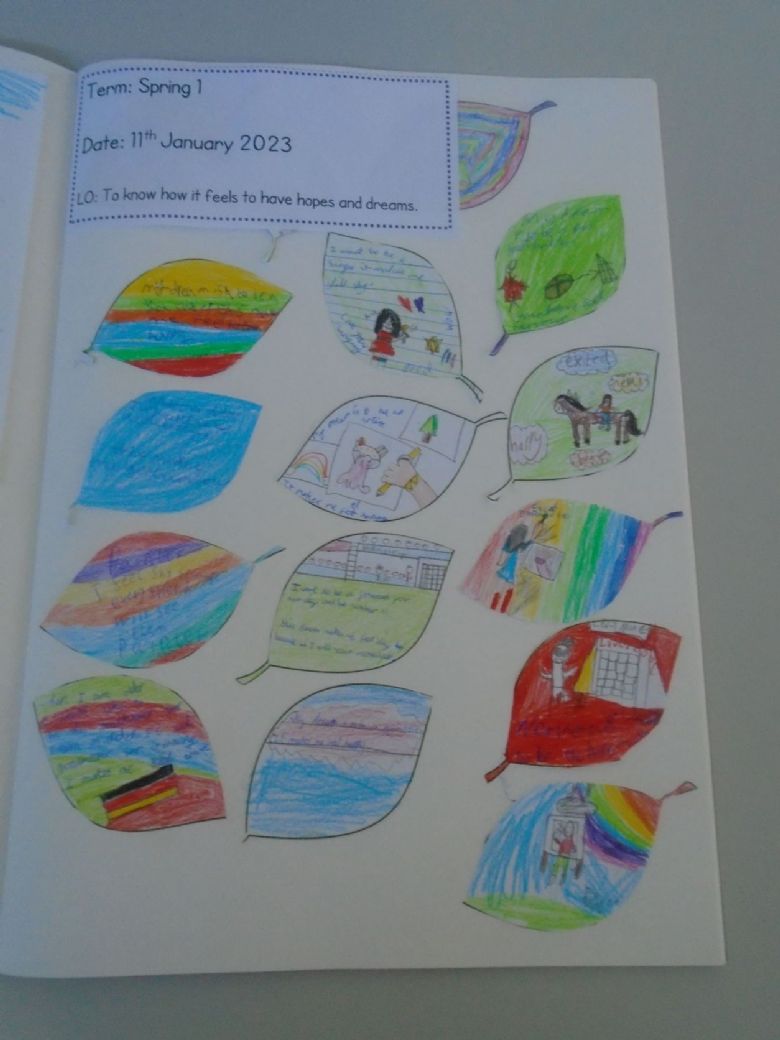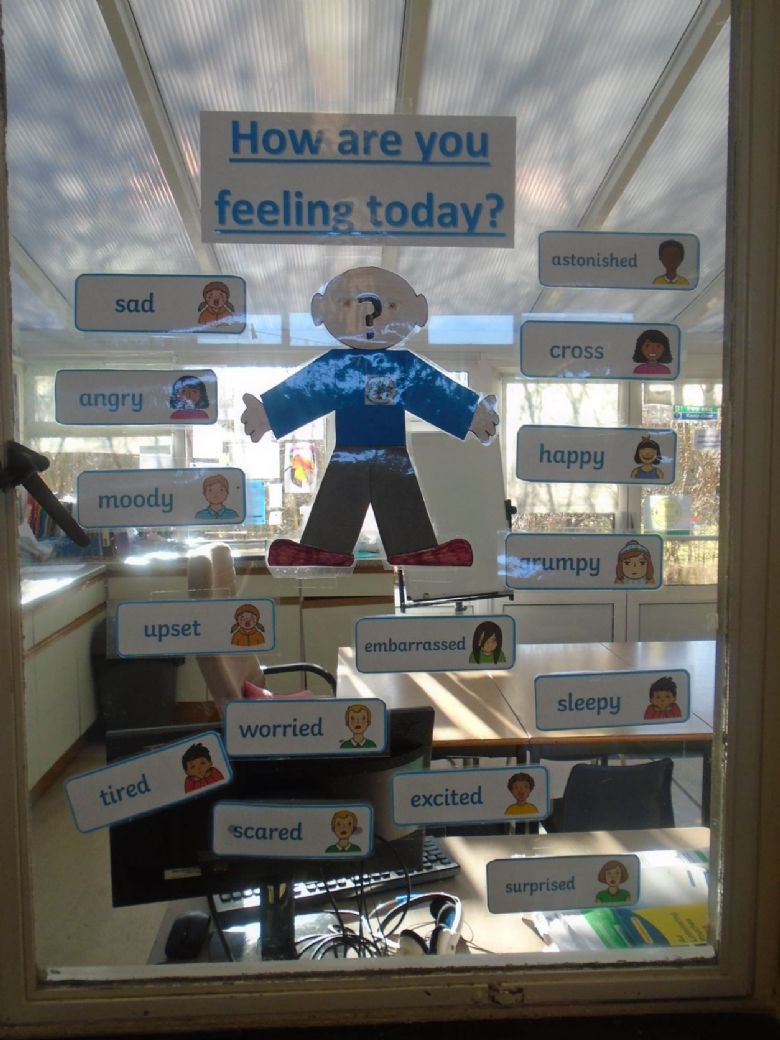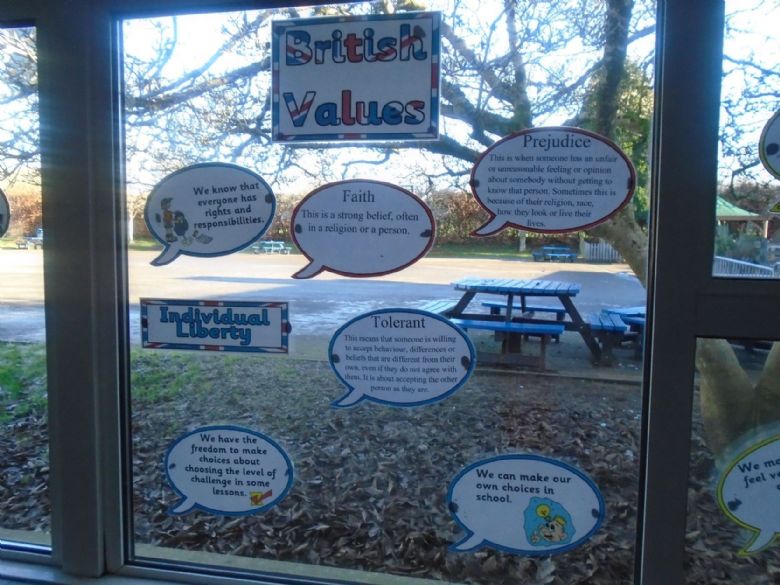PSHE
Aunt Lucy said, "If we're kind and polite, the world will be right." - Paddington
Intent
At Clarendon Federation, consisting of Clarendon Infants’ and Junior Schools, PSHE enables our children to become healthy, independent and responsible members of society. Twinkl Life’s PSHE and Citizenship Scheme of Work aims to equip children with essential skills for life. It aims to develop the whole child through carefully planned and resourced lessons that develop the knowledge, skills and attributes children need to protect and enhance their wellbeing. Through these lessons, children will learn how to stay safe and healthy, build and maintain successful relationships and become active citizens, responsibly participating in society around them. Successful PSHE curriculum coverage is a vital tool in preparing children for life in society, now and in the future. Lessons in this scheme of work have their foundations in seeing each and everybody’s value in society, from appreciation of others in units such as Diverse Britain, to promoting strong and positive views of self in Think Positive and Be Yourself. Twinkl Life’s PSHE and Citizenship units aim to cover a wide range of the social and emotional aspects of learning, enabling children to develop their identity and self-esteem as active, confident citizens. The themes and topics support social, moral, spiritual and cultural development and provide children with protective teaching on essential safeguarding issues, developing the knowledge of when and how children can ask for help.
Twinkl Life’s PSHE and Citizenship resources are fully in line with the Learning Outcomes and Core Themes provided by the PSHE Association Programme of Study. This scheme of work covers all of the required objectives and follows the three core areas of Health and Wellbeing, Relationships and Living in the Wider World. The scheme of work fulfils the requirements of Statutory Relationships and Health Education, setting these learning intentions in the context of a broad and balanced PSHE curriculum.
At Clarendon Juniors, our children are always encouraged to develop their sense of self-worth by playing a positive role in contributing to school life, for example, acting as School Council representatives and House Captains.
Implementation
PSHE is taught across the school from Year 3 – 6 on a weekly basis either by the class teacher or a qualified PPA cover. Twinkl Life’s PSHE and Citizenship Scheme of Work is designed to be taught in thematic units consisting of six lessons. These units are taught in a spiral curriculum that revisits each theme every two years. This enables children to recall and build upon previous learning, exploring the underlying principles of PSHE education regularly at a depth that is appropriate for the age and stage of the child. Lessons signpost key words, building a rich vocabulary to develop understanding. Twinkl Life’s PSHE units are designed for delivery in a creative manner, using many approaches such as role play, discussion and games in groupings of various sizes. These activities enable children to build confidence and resilience. Work is recorded into a PSHE scrapbook.
Impact
Twinkl Life’s PSHE and Citizenship Scheme of Work provides schools with an effective curriculum for wellbeing. Children are enabled to develop the vocabulary and confidence needed to clearly articulate their thoughts and feelings in a climate of openness, trust and respect, and know when and how they can seek the support of others. They will apply their understanding of society to their interactions within communities, from the classroom to the wider community of which they are a part. Twinkl Life’s PSHE Scheme of Work supports the active development of a school culture that prioritises physical and mental health and wellbeing, providing children with skills to evaluate and understand their own wellbeing needs, practise self-care and contribute positively to the wellbeing of those around them.
Successful PSHE education can have a positive impact on the whole child, including their academic development and progress, by mitigating any social and emotional barriers to learning and building confidence and self-esteem. Evidence suggests that successful PSHE education also helps disadvantaged and vulnerable children achieve to a greater extent by raising aspirations and empowering them with skills to overcome barriers they face. The Twinkl Life PSHE and Citizenship Scheme of Work can be used as a whole-school approach to positively impact wellbeing, safeguarding and SMSC outcomes. This can ensure that all children can develop the knowledge, skills and attributes they need to succeed at school and in the wider world.
SPRING TERM 2, 2025
Year 3
Be yourself. This unit is inspired by the idea that it is important to have confidence to be yourself. It aims to enable children to identify their strengths and achievements as well as help them to recognise different emotions they experience. In this unit, children will also explore how to express their thoughts and feelings respectfully and how to be assertive when in uncomfortable situations. The children will also have an opportunity to explore the influence of the media in how we view ourselves and analyse the reality of these messages. The unit ends with the children exploring how to make things right when we make mistakes, both in person or online, and the importance of learning from these.
Year 4
Digital wellbeing. This unit is inspired by the idea that it is important to understand and have digital wellbeing. Children will consider what we use the Internet for and the benefits and risks of online activities. Children will learn about screen time and getting a healthy balance between online and offline activities. They will learn about online
relationships, including cyberbullying and online stranger danger. Privacy issues will be explored in terms of passwords, personal information and the sharing or forwarding of images and videos. Children will also learn about pressures and challenges that are often associated with social media.
Year 5
Be yourself. This unit is inspired by the idea that we are all individuals and that it is important to ‘be yourself’. It aims to encourage the children to develop a positive view of themselves and enable them to recognise the importance of being proud of their individuality. In this unit, children focus on the importance of recognising
situations where they need to make positive choices in order to do the right thing. They also explore how to avoid being led into tricky situations and how to recognise and respond to peer pressure. The unit will also look at how to be confident and how to manage uncomfortable feelings. The unit ends by helping the children to investigate how to make things right when they make a mistake.
Year 6
Digital wellbeing. This unit is inspired by the idea that it is important to understand and have digital wellbeing. Children will consider ways they can use the Internet positively and how they can look after their wellbeing while being online. Children will learn about potential risks of being online and when using digital technologies as well
as strategies to stay safe and to get help. They will also learn about online relationships and what a respectful and healthy online relationship looks like, as well as signs of an inappropriate online relationship and ways to get help. The benefits and risk of social media will also be explored, as well as how social media can be used responsibly. Children will also learn how to recognise what online bullying looks like and how to help make it stop. Finally, the concept of ‘fake news’ will be explored with children learning how to be able to tell if something online is reliable or not and what they can do to stop the spreading of unreliable information.
PSHE around our school
What pupils say about PSHE at Clarendon Junior School:
"I am proud to see my work in the class scrap book."
"I like being able to share ideas and discuss different things."
"We are not ever forced to say anything if we don't want to in lessons. This makes me feel comfortable."
"I like the inclusivity of PSHE and how it teaches people to be tolerant."






